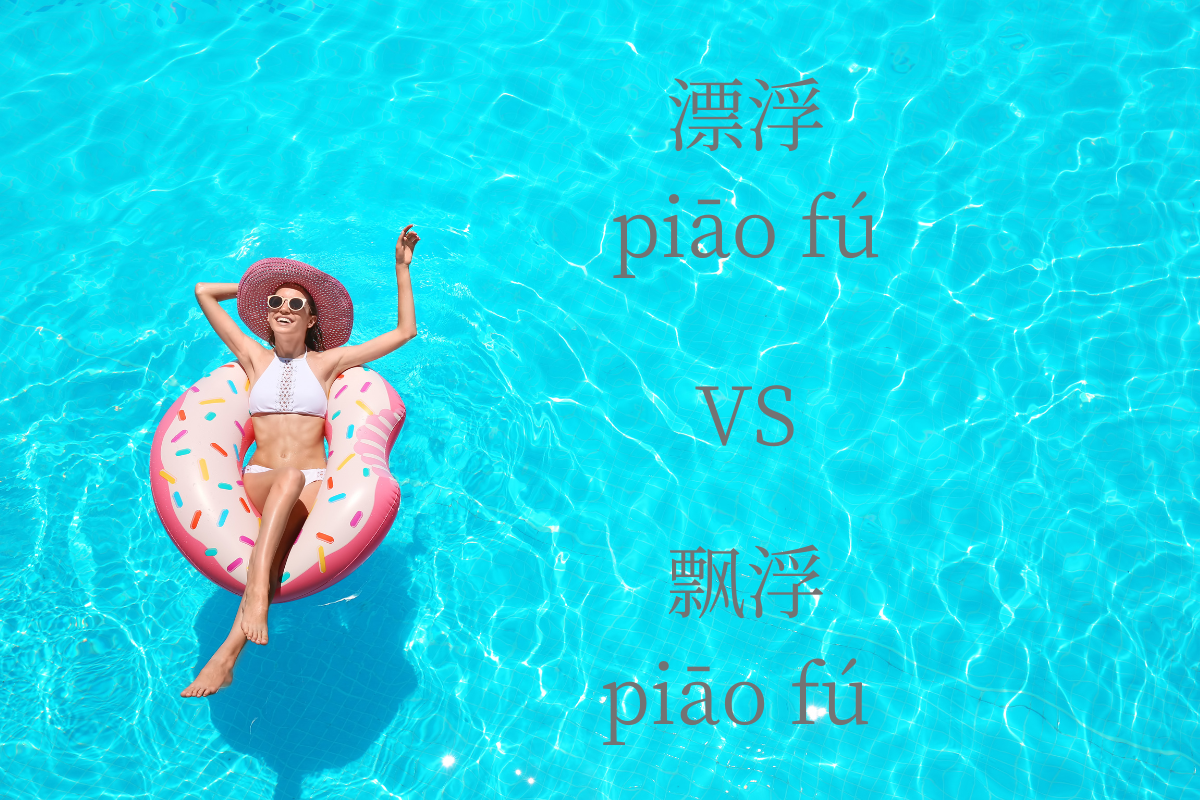HSK Words: 漂浮 (piāo fú) VS 飘浮 (piāo fú)
In Chinese language learning, the HSK words 漂浮 (piāo fú) and 飘浮 (piāo fú) are often confused by learners. While both words can be used to describe the state of floating or rising, they carry distinct meanings that set them apart. In this article, we will explore the nuances between these two words by examining their definitions and examples of usage.

漂浮 (piāo fú) typically implies a state of floating on the surface of a liquid or remaining suspended in a liquid medium. It is often used to describe objects or substances that are not sinking or are floating on the surface of water.
Examples:
- A leaf is floating on the surface of the water.
一片树叶漂浮在水面上。
yī piàn shù yè piāo fú zài shuǐ miàn shàng。 - The wooden raft floats forward in the river water.
木筏在河水中漂浮前进。
mù fá zài hé shuǐ zhōng piāo fú qián jìn。 - Oil floats on the surface of water.
油在水面上漂浮。
yóu zài shuǐ miàn shàng piāo fú。
飘浮 (piāo fú) implies a state of rising or floating in the air, often in a light and unsteady manner. It is typically used to describe things that are not firmly attached or are moving or swaying in the air.
Examples:
- The balloon is floating in the air.
气球飘浮在空中。
qì qiú piāo fú zài kōng zhōng。 - Smoke rises and floats out of the chimney.
烟雾从烟囱中飘浮出来。
yān wù cóng yān cōng zhōng piāo fú chū lái。 - Snowflakes are floating in the air.
雪花飘浮在空中。
xuě huā piāo fú zài kōng zhōng 。
In summary, 漂浮 (piāo fú) and 飘浮 (piāo fú) are two distinct words in Chinese. 漂浮(piāo fú) implies a state of floating on the surface of a liquid or remaining suspended in a liquid medium, while 飘浮(piāo fú) suggests a state of rising or floating in the air, often in a light and unsteady manner. Understanding the specific meanings of these words and their appropriate usage can enhance your Chinese language comprehension and communication skills.
Quiz: Please consider whether to use 漂浮 (piāo fú) VS 飘浮 (piāo fú) in the following sentences.
- 一个塑料袋在水中______。
yī gè sù liào dài zài shuǐ zhōng ______。 - 灰尘______在空中
huī chén ______ zài kōng zhōng。 - 我们看着气球高高地______在天空。
wǒ men kàn zhe qì qiú gāo gāo de ______ zài tiān kōng。
Answers:
- 漂浮(piāo fú)
- 飘浮 (piāo fú)
- 飘浮 (piāo fú)